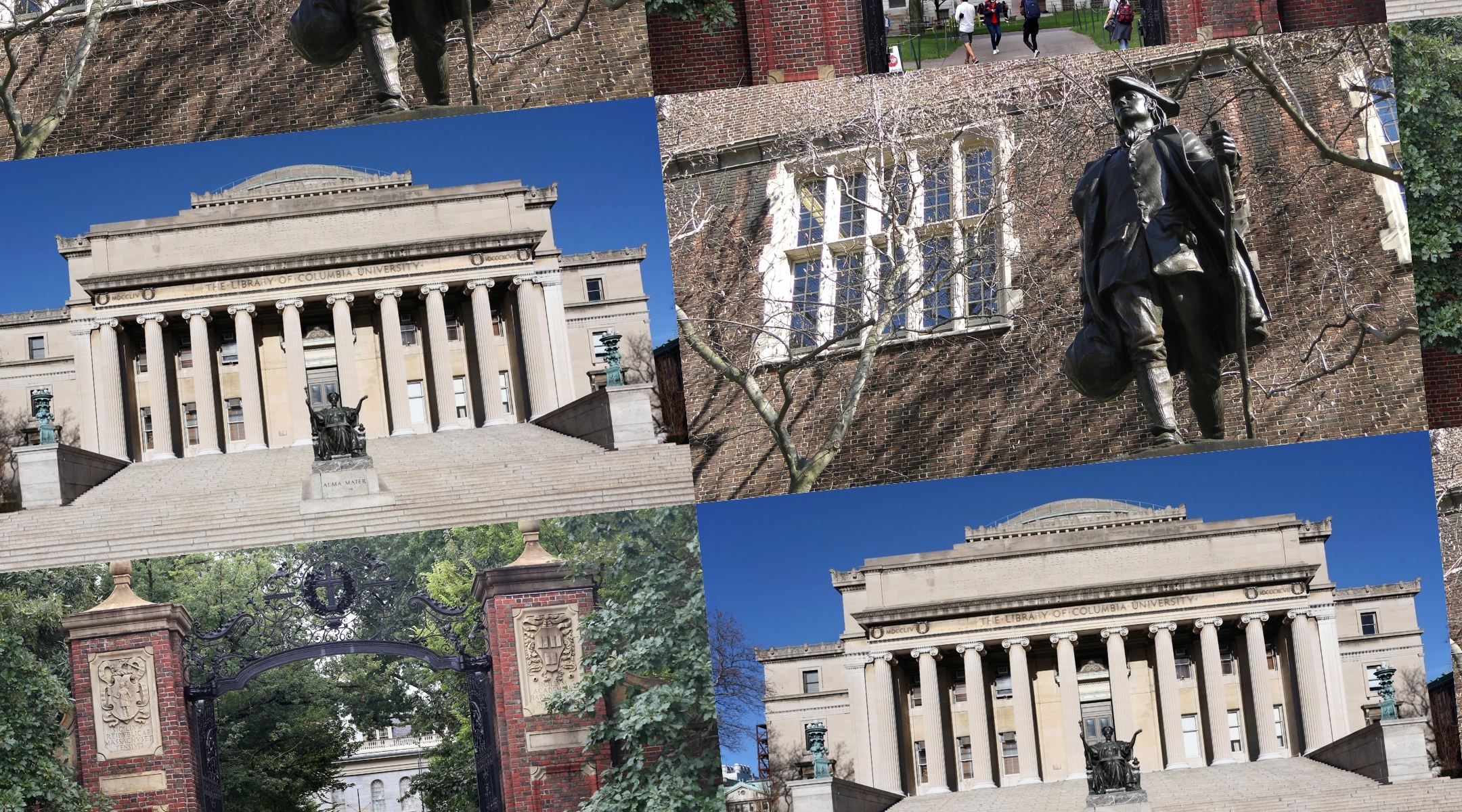(JTA) — Three Ivy League universities have announced steps to fight antisemitism after weeks of turmoil on their campuses and others.
Harvard University has put together a group of advisors to address antisemitism on campus, and both the University of Pennsylvania and Columbia University announced on Wednesday that they would convene task forces on antisemitism.
The announcements come as those schools and many others have contended with complaints that their administrations have not taken sufficient action to protect Jewish students or condemn Hamas following its Oct. 7 attack on Israel. At Cornell University, another Ivy League school, a junior was recently arrested for threatening to kill Jewish students.
At Harvard, the team of advisors includes Harvard faculty, staff, alumni, and religious leaders from the Jewish community, President Claudine Gay announced on Friday. They include Dara Horn, a 1999 graduate and author of “People Love Dead Jews,” an essay collection on antisemitism; Rabbi David Wolpe, who recently retired from Los Angeles’ Sinai Temple and is currently teaching at Harvard; Thomas Dunne, Harvard College’s dean of students; and Martha Minow, the former dean of Harvard Law School, who is Jewish.
“They will help us to identify all the places — from our orientations and trainings to how we teach — where we can intervene to disrupt and dismantle this ideology, and where we can educate our community so that they can recognize and confront antisemitism wherever they see it,” Gay said at a Shabbat dinner at Harvard Hillel on Friday. “They will help us find opportunities to foster the empathy, literacy, and understanding across identities and beliefs that we need to be the Harvard the world is calling for and that our community deserves.”
The advisory group’s formation comes three weeks after Hamas’ attack ignited conflict at Harvard. Dozens of student groups, including representatives of Palestinian, Arab, Black, Bengali, Pakistani, South Asian and Sikh student associations, signed onto a letter the day of the attack that solely blamed Israel for the violence and called on Harvard to “take action to stop the ongoing annihilation of Palestinians.”
The university did not issue a statement of its own for days, drawing criticism and in some cases consequences from concerned pro-Israel alumni and donors. Several groups pulled their names from the letter following backlash, which included websites publishing identifying details of students who were linked to the signatories.
Gay addressed the tensions in comments during the school’s Family Weekend on Friday. She said that while the university encourages free expression, some members of the community had failed to condemn various types of hatred.
“Harvard rejects terrorism. Harvard rejects hate—antisemitism, Islamophobia, hate of any group of people based on their faith, their national origin, or any aspects of their identity,” Gay said. “Harvard rejects the harassment or intimidation of individuals based on their beliefs. Pernicious ideologies—and the unconscionable actions they can inspire—are an affront to all that we are and all that we seek to accomplish. They have no place here.”
At Penn, where tensions over the Israeli-Palestinian issue were roiling even before Hamas’ attack, the university said it would review its public safety practices, create both an antisemitism task force and a student advisory group, and send a delegation of university leaders to a conference about antisemitism in higher education being held at Brandeis University later this month.
After a conference at the school showcasing Palestinian authors drew criticism last month, Penn is also scrutinizing how it allows outside groups to use university space And it is adopting the International Holocaust Remembrance Alliance definition of antisemitism, known as IHRA, as a tool for its task forces. Advocates for the definition, which has been adopted by an array of institutions and governments, say it provides a useful yardstick for determining whether statements are bigoted against Jews, while its critics say its inclusion of some forms of Israel criticism could have a chilling effect on free speech.
At Columbia, where students and faculty have been trading letters about Israel and where a former student is facing hate crime charges after allegedly assaulting an Israeli student during a confrontation related to the Israel-Hamas war, a new task force will identify short- and long-term strategies to combat antisemitism at the university and its affiliated institutions.
“One would hope that by the twenty-first century, antisemitism would have been relegated to the dustbin of history,” Columbia University president Minouche Shafik, Barnard President Laura Rosenbury and Teachers college President Thomas Bailey wrote in their announcement. “But it has been rising here in New York, across the country, and around the world in recent years.”
The announcement Wednesday named Ester Fuchs, director of the Urban and Social Policy Program at the School of International and Public Affairs; Nicholas Lemann, Journalism School dean emeritus; and David Schizer, the Law School dean emeritus, as heads of the task force. Fuchs, Lemann and Schizer were the primary authors of an open letter that demanded the university “unambiguously” condemn Hamas’ Oct. 7 attack on Israel, in response to another faculty letter that said it aimed to “recontextualize” the attack as a “military response.”
“Speaking out on issues like this helps strengthen Columbia and prevent the kind of disputes that are a very healthy part of the University from tearing apart the sort of fabric of respect and safety in the University,” Lemann told the Columbia Spectator.
JTA has documented Jewish history in real-time for over a century. Keep our journalism strong by joining us in supporting independent, award-winning reporting.






